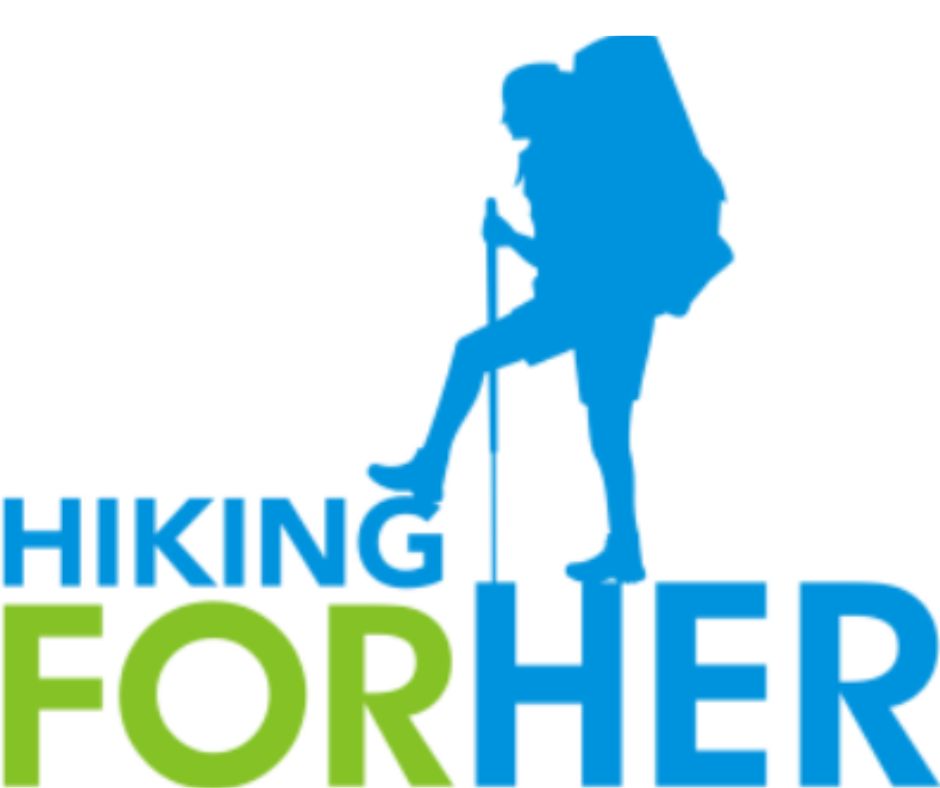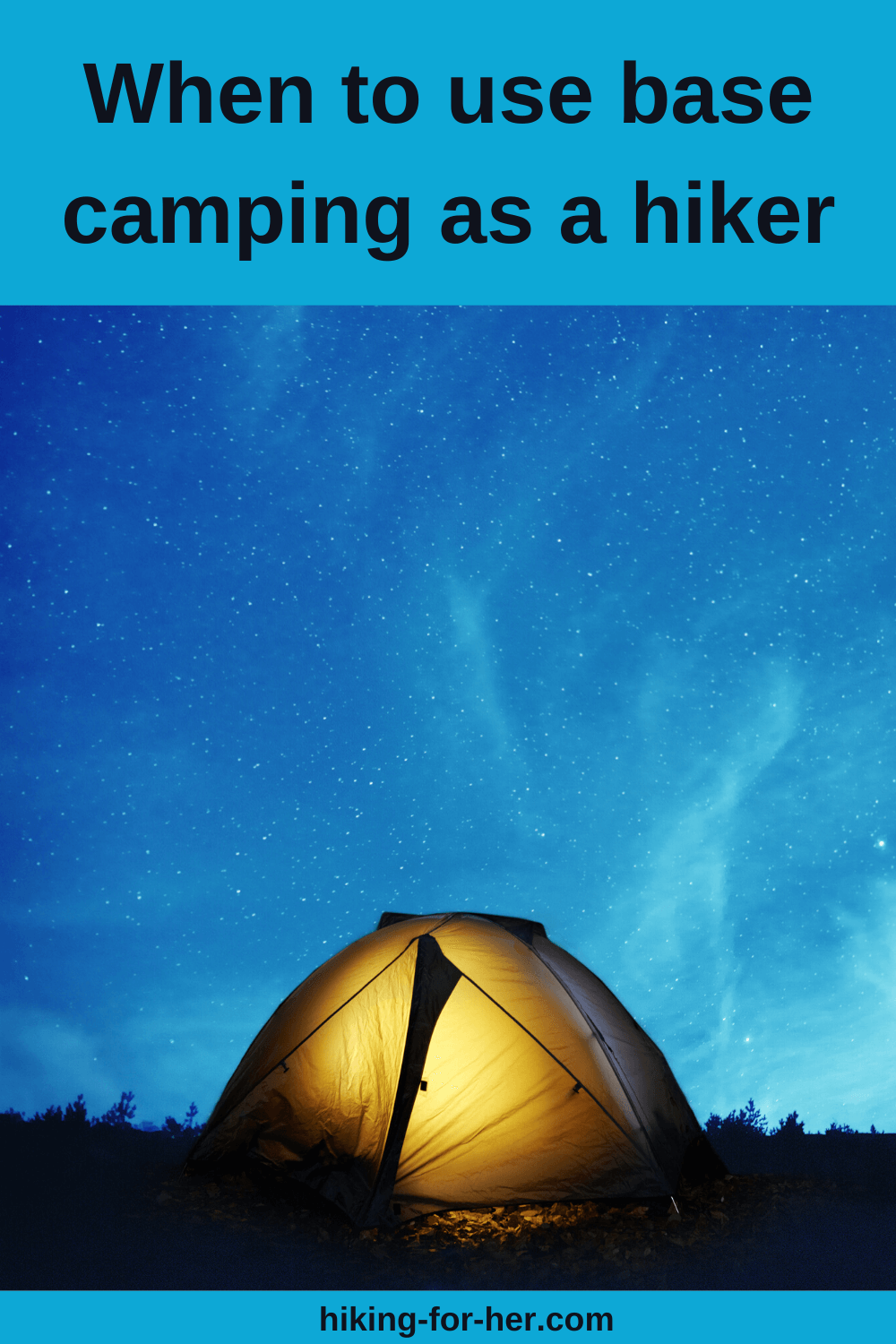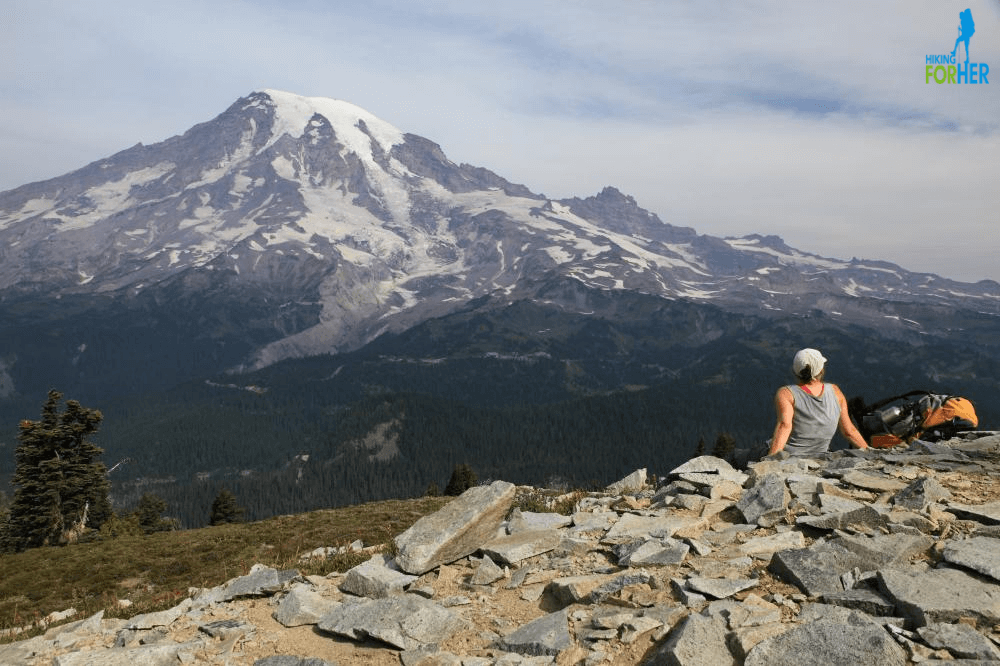Base Camping Best Tips:
Try Day Hiking In
Multiple Directions
By Diane Spicer
What is base camping?
Base camping establishes a "sort of permanent" temporary home away from home when you're backpacking.
You hike into a great location, and make camp.
- So far, that sounds like backpacking, right?
But establishing a home base means you stay put for several days and nights.
This gives you the opportunity to enjoy serial day hikes or daily explorations of your chosen area.
And then return to your camp site in the evening.
Another way to base camp
You can use established free or fee campgrounds as a base camp, too.
Spend some time choosing a perfectly located campground, within easy driving distance to day hike traiheads. You don't want to spend your vacation time in the car, right?
A few tips:
- Be sure you understand rules and regulations around access to roads, number of nights allowed, and the amenities (pit versus flush toilets, camp sinks for washing dishes or not) before you arrive.
- Bring cash in small bills to pay for your campsite and also for firewood for campfires.
- Have a pen handy for filling out your campsite registration.
- Campgrounds can be noisy, so use ear plugs for a good night's sleep.
- Be a good neighbor and be quiet as a mouse when you get up at 5A to hit the trail (even when your neighbors have partied hard right next to you all night).
When does base camping
make sense for a hiker?
Now that we've got base camping
described, it's time to think about how you can use this hybrid dayhike/backpacking approach as a hiker.
Here are twelve basecamping scenarios for when to use basecamping to your advantage.
On a budget
Campgrounds are inexpensive compared with hotels.
Camp food is cheap compared with restaurants.
Rent or borrow some camping equipment.
Buy used gear from reputable companies who take time to refurbish and repair it before passing it on to you.
A tank of gas can get you there and back if you choose the right camping area.
- Or take public transportation if that is available.
If you have to purchase a pass to get into a park in order to camp, get max value out it with day after day of glorious hiking.
- For example: Mount Rainier dayhiking.
Sounds like a bargain to me :)
That special spot
Have you been salivating to explore a
special spot on the map? Somewhere that gives you the hiking tingles
just thinking about it?
Choosing a base camp gives you time to become immersed in your special area.
- Do several day hikes to explore interesting terrain features and get to know local flora and fauna.
- Use lazy evenings and early morning opportunities for exploration.
- Or just sit and watch the sun rise/set!
No worries about having to pack up the next day and hit the road to check off another box on an exhausting sightseeing tour.
Avoid hassles
Time is precious, no more so than when you're on holiday. Use basecamping when you feel that your time is better spent on the trail, rather than on:
- setting up and breaking down camp every day
- driving car shuttles to avoid backtracking
- wrestling with unpredictable factors such as weather, availability of water, or finding a campsite each night
Go easy on your body
When you don't want to (or can't, due to an injury or physical limitation) carry your hiking & camping gear for long distances, this type of hiking makes sense.
You can turn back on your day hikes whenever you want to, knowing you have a home base waiting for you.
You can push the idea of backpacking from a hike-in base camp into the realm of car camping, if you'd rather have some luxuries along for the ride but still have an outdoor dining and sleeping experience:
- a roomier tent
- padded camp chairs
- stove top meals
- toilet seats
Read how to make car camping for hikers a good experience!
Adaptability
If you need a rest day in the
middle of your basecamping plans, just crawl into your sleeping bag and
take long naps all day.
Don't feel like hiking when you wake up in the morning?
- Sit by the lake or river, do some low key explorations around camp, or read a book in your cozy camp chair.
- More camp comfort tips here.
With basecamping, you can alter your agenda on the fly.
That's not true with most backpacking trips, when you have to hit mileage targets day after day due to permits or time pressures.
Terrain restrictions
When rocky, steep or snow covered terrain limits the availability of camp sites in a particular region, it makes sense to choose a spot for a safe base camp.
Then explore the areas over several days, without having the anxiety of finding a new camping spot each evening.
Nature retreat
At some point in your life, you might want to do a "retreat" type of trip, focusing on mental or spiritual development rather than logging mileage.
Yes, it happens to us all: our aging bodies, our accumulated responsibilities in the world, our hurts and passions and disappointments lead us within.
Basecamping for a week gives you time and space, safety and comfort so you can focus your energy on yourself.
The littles
Two ways to provide a safe haven when you are introducing your kids to hiking:
- Use an established campground to set up a safe, comfortable haven to use in case of nasty weather, an injury, or tired legs.
- On a backpacking trip, hike to a campsite the first day and hunker down for the rest of the trip. Do day trips of suitable length, or just let the kids noodle around in the woods! You've got food and shelter covered no matter what happens.
Newbies
Introducing someone to the joys of backpacking might go a little easier if the first few trips are overnights or basecamping.
Pick out a great area to explore, then hike in and get your campsite set up on Day One.
Relax and take day hikes from there in all directions.
Throw in a night hike if you're feeling up to it.
The beauty of this approach?
- You can concentrate on the newbie's questions and concerns, not the logistics of a backpacking trip. (Are you listening, guys?)
P.S. Pack amazing food! That'll hook 'em for sure ;)
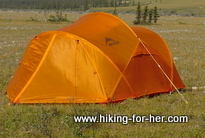 Home Sweet Home
Home Sweet Home
Solo hikers
A solo hiker isn't born, she is made one trip at a time.
If you're just beginning to dabble in solo hiking, try basecamping. It gives you a sense of security, especially if your campsite it well hidden from the trail.
And it allows you to immerse yourself in the hiking with full confidence that you have a comfortable nest to return to at all times.
Rendezvous
When other hikers are going to join you in a day or two, you need to coordinate your meet up spot.
If you set up a basecamp, you can maximize your trail time with day hikes and exploration before they arrive.
Or you can set up an amazing camp spot and enjoy it yourself while you wait for them.
Your friends/family can relax, knowing they have a designated spot to meet you, and a secure place to pitch their tent(s).
Win-win!
Pushing the limits
Sometimes you know that you need every minute of daylight to reach your hiking objectives for the day.
Why not establish a basecamp so you have a home base waiting for you?
- This is especially important if you are hiking in unfamiliar areas.
- You can use your headlamp to get back to your familiar camp, making the absolute most of your trail time.
What to look for in a base camp
Now that you've identified a scenario that fits for you, you're probably wondering:
What should you consider when looking for the perfect base camp?
Availability of water is a priority
You don't want to pack in water for several days, and there's no need to if you have a method of purifying it.
(Unless you are lucky enough to be in a spot where no purification is needed. WOW! You are really somewhere special then.)
Make sure you will have a reliable source of surface water, regardless of season.
Fast/easy access from the trail head
Why knock yourself out getting to the base camp location?
- Save your fire power for the multiple day hikes you have planned.
Of course, the flip side of this should also be considered:
The toil of a rough or long hike into a special spot as "home base" can be overlooked, since you'll have several days to recover.
And hopefully gloat over your solitude.
If the option of serial day hikes from one camping site appeals to you, you'll need some serious camping equipment to make establishing a base camp comfy.
And maybe base camp is at an established campground accessible by car. Ah, the luxury! The heavy weight of a fully loaded cooler! As many s'mores as you can stuff in after dinner.
Or take the concept of basecamping one step further: a bush plane ride into a remote camp spot. Read how here.
Opportunities for exploration
You need a spot that you can't tap out in one day.
This is where earlier reconnaissance with maps, trail guides, forums, and other hikers is a great idea.
Go into the area with more than enough day adventures planned.
If the weather turns on you, or your energy levels fluctuate, you have multiple options already planned.
Also, prioritize your adventures.
- Do the most tantalizing one first, when the weather is good and you're feeling strong.
And the opposite scenario might also play out:
- Bad weather consumes the first few days, but you know you can wait it out until things clear up - and still see the good stuff.
- You'll have a home away from home in your tent as the rain drops fall & you read your Kindle.
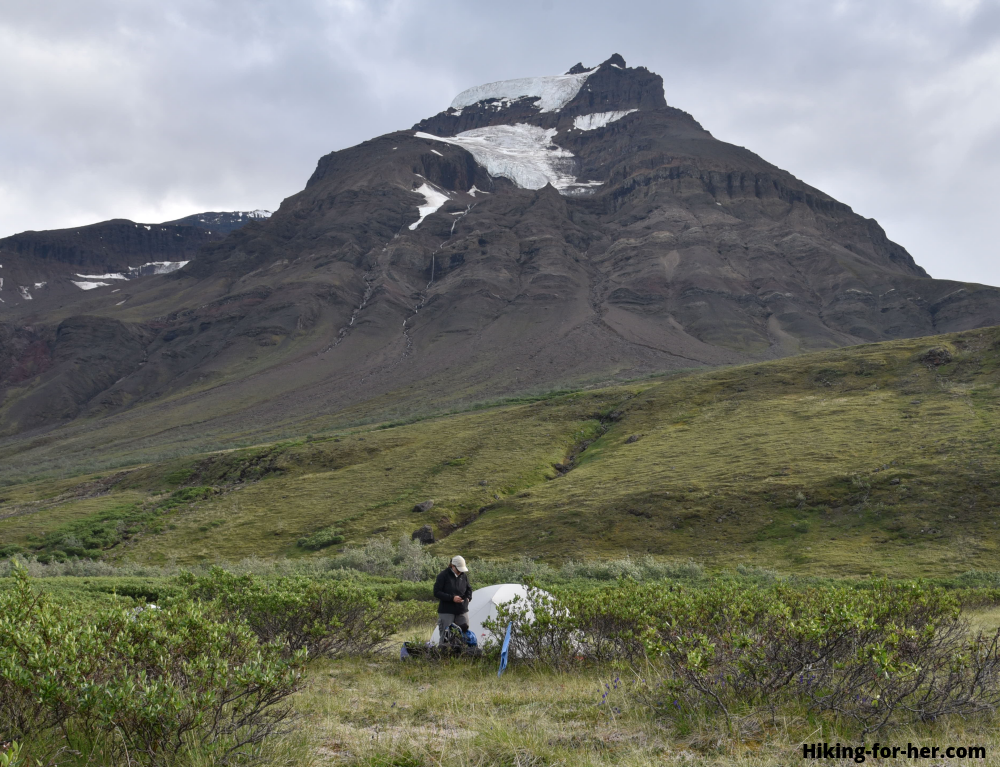 Hunkering down for days of great day hikes in this vast wilderness (Wrangell St. Elias)
Hunkering down for days of great day hikes in this vast wilderness (Wrangell St. Elias)
Personal hygiene while basecamping
Many women are concerned about personal hygiene on the trail.
And it's true: After a few days of hiking, sleeping, cooking and relaxing outdoors you're going to start noticing how you are feeling crusty.
You might also notice some odors that you could, if you really wanted to, call unpleasant ;)
Don't stress!
Read these tips for good female hygiene while backpacking. They apply to basecamping trips, too.
And use these product recommendations for clean skin, hair, teeth and more.
Be a good neighbor
Once you're all set up and have established a base camp that suits you, be sure your noise levels are kept to a respectful level.
Backpackers who are only spending one night at "your" lake or special spot will appreciate the quiet.
Other campers at campgrounds will appreciate your respect of "quiet hours".
And always use Leave No Trace principles to keep your activities separate from the local wildlife, whether botanical or otherwise.
Does this style of hiking
sound good to you?
This style of hiking isn't right for everyone.
Some hikers feel the need to wrack up mileage, push their limits, see new vistas around every corner, and don't mind breaking camp each morning.
- They are called thruhikers or section hikers.
Some folks stick to day hiking to get their hiking fix.
Others like to do this style of "immersion" hiking, sinking into one spot and really getting to know it.
Tip:
Do this for enough seasons, and you'll fill in an area on the map that has deep personal meaning to you.
- You give yourself the gift of plenty of time for photos and journaling.
- It's a great solo approach, because you can concentrate on the terrain rather than endurance hiking as you get comfortable with soloing.
Read about more types of hiking to be sure you've got the right approach to this wonderful sport.
Base Camping
